Revolutionizing Precision: How CNC Machine Tools are Shaping the Future of Manufacturing Technology
As the manufacturing industry stands on the brink of a technological revolution, CNC machine tools have emerged as a pivotal force in redefining precision and efficiency. According to Dr. Emily Chen, a renowned expert in the CNC machining sector, "The integration of advanced CNC machine tools with innovative software solutions is not just enhancing productivity; it is revolutionizing how we define precision in manufacturing." This insight reflects the growing trend of digitization and automation that is reshaping production processes across various industries.

CNC machine tools are no longer just mechanical devices; they have evolved into sophisticated systems that incorporate artificial intelligence, data analytics, and real-time monitoring. This transformation is enabling manufacturers to achieve unparalleled accuracy while simultaneously reducing waste and production costs. As businesses strive to remain competitive, mastering the capabilities of CNC machine tools becomes essential for innovating and adapting to the ever-changing market demands.
In this rapidly evolving landscape, understanding the implications of CNC machine tools on manufacturing technology is crucial. With each new advancement, the capacity for customization, speed, and precision expands, paving the way for a future where manufacturing is not only smarter but also more sustainable. This is the dawn of a new era, wherein CNC machine tools are not just tools but catalysts for transforming the industrial paradigm.
Emerging Trends in CNC Machine Tool Technology
The landscape of manufacturing technology is undergoing a significant transformation, largely driven by advancements in CNC (Computer Numerical Control) machine tool technology. One of the most noteworthy trends is the integration of automation and artificial intelligence into CNC operations. These technologies enhance precision and efficiency, allowing machines to adapt in real-time to varying production demands. By utilizing AI algorithms, CNC machines can analyze performance data, predict maintenance needs, and optimize machining processes, leading to reduced downtime and improved overall productivity. Another emerging trend is the increasing adoption of additive manufacturing techniques alongside traditional CNC methods. This hybrid approach allows manufacturers to create complex geometries that were previously difficult or impossible to achieve with conventional machining. By combining subtractive and additive techniques, companies can streamline production, reduce material waste, and shorten lead times. Furthermore, as manufacturers strive for more sustainable practices, the rise of eco-friendly CNC tools that reduce energy consumption and utilize recyclable materials is also gaining traction, making it an essential component of future manufacturing strategies.
The Impact of CNC Machines on Manufacturing Precision and Efficiency
CNC (Computer Numerical Control) machines have ushered in a new era of manufacturing, significantly enhancing both precision and efficiency across various industries. By automating the machining processes, CNC technology minimizes human error, allowing for incredibly tight tolerances and consistent product quality. This precision is crucial for sectors demanding exact specifications, such as aerospace, automotive, and medical device manufacturing, where even minor deviations can have significant consequences.
Moreover, the efficiency of CNC machines is evident not only in their ability to operate continuously with minimal downtime but also in their capacity for complex and intricate designs that would be nearly impossible to achieve manually. Advanced CNC systems can quickly produce high volumes of parts while maintaining their dimensional integrity, leading to shorter lead times and reduced costs. As manufacturers increasingly adopt CNC technology, the overall productivity of the manufacturing process improves, turning it into a seamless and reliable operation that meets the evolving demands of the market.
Integrating AI and Automation in CNC Machine Operations
The integration of artificial intelligence (AI) and automation in CNC machine operations is set to transform the landscape of manufacturing technology significantly. The launch of the new generation intelligent CNC system in China exemplifies this trend, showcasing how AI capabilities can enhance machinery performance. By incorporating advanced algorithms and large-scale models, these systems are not only boosting precision in machining processes but also optimizing productivity and reducing operational costs.
As global demand for CNC machine tools continues to rise, projected to grow from $132.63 billion in 2025 to $229.46 billion by 2032, the market is rapidly adapting to these technological innovations. The influence of AI-driven tools is pivotal, facilitating intricate design processes and ensuring consistent quality control. The evolving machinery landscape indicates that companies adopting AI and automation will likely gain a competitive edge, positioning them at the forefront of the manufacturing sector. These advancements are indicative of a broader shift towards smart manufacturing solutions that promise efficiency, precision, and enhanced production capabilities.
Sustainability Initiatives in CNC Manufacturing Processes
The integration of sustainability initiatives in CNC manufacturing processes is transforming the landscape of modern production. As industries face increasing pressure to reduce their environmental impact, CNC machine tools are stepping up to meet this challenge. Advanced technologies, such as energy-efficient motors and regenerative braking systems, are being implemented to minimize energy consumption. Additionally, the use of bio-based lubricants and coolants further enhances sustainability by decreasing hazardous waste.
Moreover, CNC machining enables the efficient use of materials through precise cutting and minimizing scrap. This not only conserves resources but also reduces costs for manufacturers. Furthermore, by adopting a circular economy approach, companies are rethinking their supply chains to incorporate recycled materials into their processes. Continuous improvement programs focus on waste reduction and resource efficiency, ensuring that CNC technologies not only advance precision manufacturing but also contribute to a greener future. These initiatives set the stage for a more responsible manufacturing sector that prioritizes both innovation and environmental stewardship.
Future Challenges and Opportunities in CNC Technology Development
The rapid advancement of CNC (Computer Numerical Control) technology has opened new avenues for innovation in manufacturing. As industries strive for greater efficiency and precision, challenges such as maintaining quality while scaling production, integrating advanced software, and adapting to unique material requirements emerge. The future of CNC technology development lies in addressing these challenges through research and collaboration, promoting the integration of artificial intelligence and machine learning to enhance operational capabilities.
Tips for navigating these opportunities include investing in ongoing training for personnel to keep pace with evolving technology. Companies should also prioritize flexible manufacturing systems that can efficiently handle various production tasks, allowing for quicker adaptations to market demands. Another strategy is to engage in partnerships with technology providers to stay ahead of trends and leverage cutting-edge innovations.
Additionally, manufacturers must not overlook the importance of sustainability in CNC operations. By adopting eco-friendly practices and materials, companies can reduce their environmental impact while meeting the growing consumer demand for responsible production methods. Embracing these future challenges will not only enhance competitive advantage but also contribute positively to the industry’s evolution.
Revolutionizing Precision: How CNC Machine Tools are Shaping the Future of Manufacturing Technology
| Dimension | Current Status | Future Opportunities | Challenges Ahead |
|---|---|---|---|
| Automation | High Levels of Automation in Production | Integration of AI for Process Optimization | Initial High Investment Costs |
| Precision | Precision Machining Capabilities are Expanding | Advancements in Material Science for Better Tolerances | Maintaining Consistency in Production |
| Software Integration | Current Software Solutions are Adequate | Development of More Intuitive CAD/CAM Systems | Interoperability Issues Between Different Systems |
| Sustainability | Growing Focus on Reducing Waste | Use of Eco-Friendly Materials and Processes | Regulatory Challenges and Compliance |
Related Posts
-
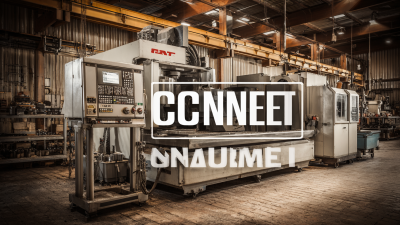
7 Reasons Why Best CNC Equipment is Essential for Your Global Sourcing Strategy
-
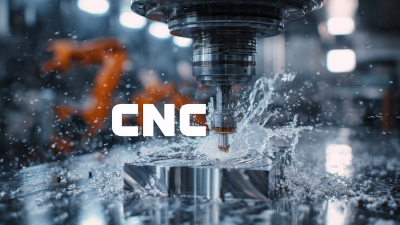
Crafting Excellence with the Best CNC Machines from China for Global Service
-
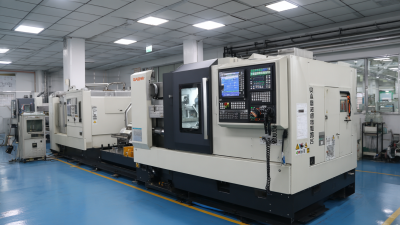
Discover the Excellence of Quality China Made CNC Machine Tools for Global Markets
-
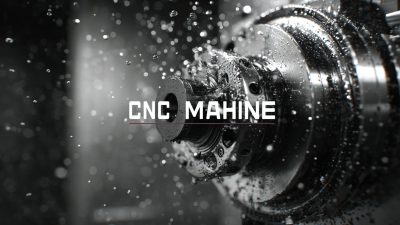
Exploring the Best CNC Machine Alternatives for Your Manufacturing Needs
-
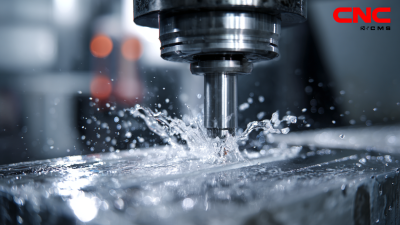
Challenges Associated with Choosing the Best CNC Milling Machine for Your Needs
-
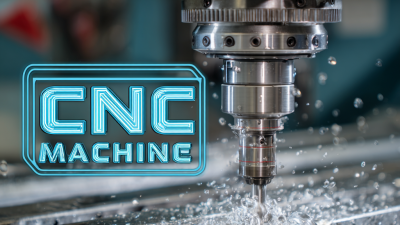
How to Choose the Best Multi Axis CNC Machine for Your Manufacturing Needs